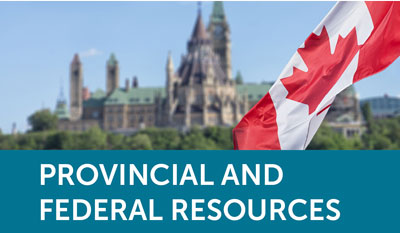
Public Health Resource Centre
The Public Health Agency of Canada relies on national associations like the CCA to provide healthcare professionals with updates on issues and topics that may impact their patients and or their practices.
- Facebook:Healthy Canadians
- Facebook:Travel Advice from the Government of Canada
- Twitter:@TravelGoC
- Twitter:@GovCanHealth
- Twitter:@CPHO_Canada
- LinkedIn:Public Health Agency of Canada
The CCA endeavors to keep this page up to date with the latest information we have been provided. If you notice any out-of-date information, please notify the CCA at: [email protected].
Monkeypox
PHAC is continuing to collect and analyze epidemiological information reported by the provinces and territories to help define the national scope of the investigation and to determine if there are any increased health risks to people in Canada.
- Outbreak updates
- Symptoms and management
- Risks
- Clinical resources for Health Professionals
- Vaccination clinic resources
General information:
- Statement from the Chief Public Health Officer of Canada on August 12, 2022 (Monkeypox)
- Update on monkeypox in Canada – July 23, 2022
- Government of Canada partners with community-based organizations to address monkeypox outbreak
- Backgrounder: Funding to help community-based organizations address monkeypox
- Monkeypox: Public health management of cases and contacts in Canada
- National case definition: Monkeypox
- Monkeypox: Vaccination clinic resources
Opioid Crisis
Pain is real, complex, and can be difficult to manage. Opioids have quickly emerged as one of the primary means for managing acute and chronic non‐cancer pain in primary care settings. With an estimated 2,000 Canadians dying annually from prescription opioids, it is clear that we are facing a national crisis. This has been exasperated during the COVID-19 pandemic which saw an 88% increase in the number of overdose related deaths in 2020. Currently, Canada is the second highest consumer of prescription opioids in the world, with available evidence pointing to back pain and other musculoskeletal conditions as one of the key drivers. The CCA continues to advocate on this issue and participates in a number of forums to promote chiropractic as a safe and effective non-pharmaceutical approach to pain treatment.
COVID-19 NATIONAL RESOURCE CENTRE
As the national association representing Canada’s chiropractic profession, our primary responsibility is to assist our members with managing the impact of the pandemic and to assist them to prioritize the health and welfare of patients in an ever-changing environment. Given the current COVID-19 pandemic, you can find accurate, evidence-based information and guidance at your fingertips.
The information that follows is a collection of useful reference resources to help chiropractors as the COVID-19 pandemic evolves. The content on this page will be reviewed regularly and updates will be provided as new information and resources become available. For key data, trends and the status of the pandemic globally, visit the World Health Organization (WHO) Situation Report for weekly epidemiological updates.
For more information and to connect with colleagues and CCA staff, please join our private Facebook Group.
RESOURCES FOR CHIROPRACTORS
Clinic Resources
Posters
Business Tools
Patient Care
- The Public Health Agency of Canada published the Canadian COVID-19 Antibody and Health Survey (CCAHS-2). The CCAHS-2 is part of the Government of Canada’s comprehensive approach to improve understanding of and addressing the longer-term health impacts of COVID-19. Click here for more information.
- Enhance your knowledge, management and rehabilitation skills for patients with COVID-19 with this complimentary seven-module course from the World Health Organization.
Mask Recommendations
According to the World Health Organization, wearing face masks remains one of the most effective preventive measures against the spread of respiratory infections, including COVID-19. As provincial public guidelines change, we encourage all members to stay up to date with the guidelines and recommendations from their provincial regulatory body and health ministry pertaining to healthcare professionals. In many jurisdictions, mask wearing continues to be recommended in clinical settings, in situations with immunocompromised persons, and when requested by patients.
Virtual chiro care – telehealth applied to chiropractic
The information provided in the Best Practice Guide was created to help our members set-up virtual chiro care. Knowing when it is appropriate to use, when to refer and how to function with virtual chiro care is essential during this pandemic – and beyond. Virtual chiropractic visits offer the possibility to help patients who need care, potentially allowing them to decrease/manage their pain, and avoid the need for an in person visit.
This guide is for educational purposes only. We are providing the most up-to-date information while recognizing that information and updates are fluid and change depending on your province. It is critical that you check with your provincial regulator about the requirements for the ability to conduct chiropractic visits in this manner. There are many important considerations, such as privacy, consent, billing and insurance coverage that must be taken into account before proceeding.
Government Aid Programs
The Canadian government continues to operate a number of funding programs aimed at supporting businesses, employees, and individuals during the COVID-19 pandemic. An overview of available programs can be found here: www.canada.ca/en/department-finance/economic-response-plan
If you notice any out-of-date information, please notify the CCA at: [email protected]
Businesses may be eligible for retroactive subsidies to help cover part of their commercial rent, property expenses, wages paid to employees, etc. More information can be found here.
Resources and programs for businesses and their employees, including financial support, loans, and access to credit. Learn more here.
Support for Self-Employed Individuals:
Income support for self-employed individuals who are sick or need to self-isolate due to COVID-19. It is still possible to apply retroactively. More information is available here.
Income for self-employed individuals who are unable to work because they must care for their child or family member. It is still possible to apply retroactively. More information is available here
The government has made temporary changes to the Employment Insurance program to better support Canadians who need financial assistance. More information about EI benefits including sickness benefits and benefits for the self-employed is available here
Homeowners facing financial hardship may be eligible for a mortgage payment deferral. The deferral is an agreement between you and your lender. Typically, the agreement indicates that you and your lender have agreed to pause or suspend your mortgage payments for a certain amount of time. To know if you are eligible for a mortgage payment deferral or to learn what options are available, contact your lender — your bank or your mortgage professional. More information is available here
Federal Resources
Provincial Resources
If you notice any out-of-date information, please notify the CCA at [email protected].
British Columbia Chiropractic Association
Email: [email protected]
Phone: 604-270-1332
BCCA employees are working from home. The best way to contact the BCCA is by email – [email protected]. Voicemails left on the main line will be returned as soon as possible.
The College of Chiropractors of British Columbia
Email: [email protected]
Phone: 604-742-6470 or 1-877-742-6470
BC Resources for Health Care Professionals
- BC Centre for Disease Control (BCCDC) resources for health care professionals
- BC Centre of Disease Control (BCCDC) information on COVID-19
- BC Ministry of Health COVID-19 Self-assessment tool
British Columbia Covid-19 self-assessment tool
British Columbia COVID-19 Entrance Screening Tool for Health-Care Facilities
British Columbia COVID-19 Health-Care Worker Self-Check and Safety Checklist
College of Chiropractors of Alberta
Email: [email protected]
Phone: 780-420-0932
Chiropractic Association of Alberta (CAA)
Email: [email protected]
Phone: 780-420-0932
Chiropractors’ Association of Saskatchewan
Email: [email protected]
Phone: 306-585-1411
Saskatchewan Health Care Workforce Screening Questionnaire: GENERAL
Saskatchewan COVID – 19 Screening Tool Inpatient, Outpatient, Continuing Care
Saskatchewan COVID – 19 Screening Questions for the Hard of Hearing or Deaf
Ontario Chiropractic Association
Email: [email protected]
Phone: 416-860-0070 or 1-877-327-2273
College of Chiropractors of Ontario
Email: [email protected]
Phone: 416-922-6355 or 1-877-577-4772
PATIENT SCREENING GUIDANCE DOCUMENT – August 26, 2021 – Ministry of Health
Association des chiropraticiens du Québec
Email: [email protected]
Phone: 514-355-0557
Ordre des chiropraticiens du Québec
Email: [email protected]
Phone: 514-355-8540 or 1-888-655-8540
Nova Scotia College of Chiropractors
Phone: 902-407-4255
Council of the Nova Scotia College of Chiropractors
Email: [email protected]
Phone: 902-407-4255
Nova Scotia Self-assessment tool
This directive includes requirements regarding:
- Screening
- Hand hygiene
- Environmental cleaning and disinfection
- Physical distancing
- Use of PPE
- Exclusion or work restrictions during staff or chiropractor illness
Government of Nova Scotia – Coronavirus (COVID-19): restrictions and guidance
The government website contains information on:
- Self-isolation requirements
- Exemptions from self-isolation
- Medical exceptions from self-isolation and proof of full vaccination
- Gathering limits
- Full vaccination requirements
- Business and service restrictions
- Mask requirements
- Social distancing guidelines
- Enforcement
Nova Scotia Chiropractic Association
Phone: 902 407-4255
Dr. Nadia Shea - [email protected]
Prince Edward Island Chiropractic Association
Email: [email protected]
Government of PEI – Public health measures extended until January 17
COVID-19 (coronavirus) in Prince Edward Island
- Information for people who have tested positive for COVID-19
- Information for people who are close contacts
- COVID-19 Self-Isolation
- COVID-19 support programs















 416-585-7902
416-585-7902